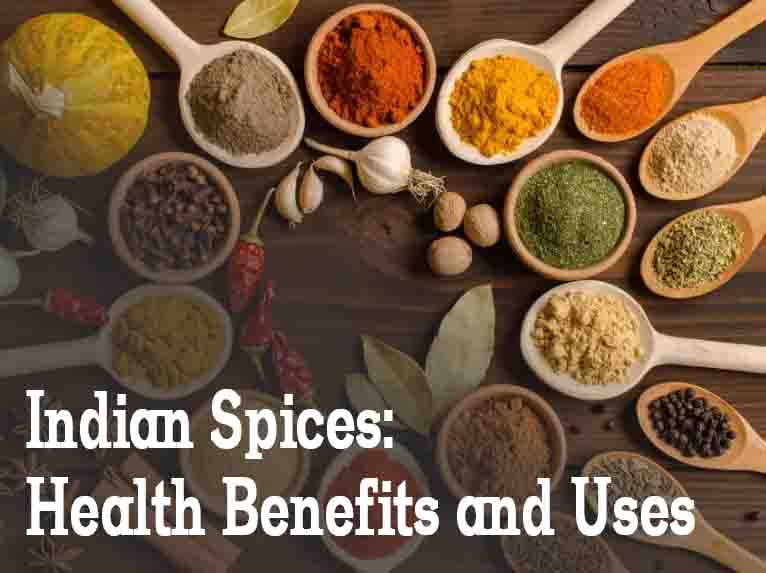Spices are pivotal in how foods are cooked and consumed in India. It’s no wonder that Indian food is loved by people worldwide for its spicy and rich flavors. However, Indian spices are much more than their flavors and taste. They also have numerous health benefits, proven repeatedly by researchers.
Hence, it’s always a good idea to include a good amount of spices in your food. Further compounds of various spices and foods work very well together, further amplifying the benefits.
Read the section below to learn more about the health benefits and uses of some of the most popular Indian spices.
Table of Contents
Cinnamon
Cinnamon is primarily used in almost all types of Indian curries and also in baked food items.
The compound cinnamaldehyde found in cinnamon has various medicinal properties. Cinnamon effectively reduces blood sugar levels by decreasing the rate of carbohydrate breakdown and increasing insulin sensitivity.
It also has antioxidant properties and aids in fighting inflammation. Moreover, cinnamon effectively controls cholesterol levels in diabetic people and their blood sugar levels. While consuming cinnamon in small amounts is beneficial, excessive consumption may cause toxicity. The healthy and adequate quantity is 1-6 grams per day.
Turmeric
When discussing Indian spices, turmeric should be on the list. No Indian food is complete without a dash of turmeric that adds to the bright color. It has anti-inflammatory properties that help treat toothaches, colic, gas, menstrual imbalance and chest pains.
Turmeric is a common remedy for injuries and scars. Recent studies have also found that turmeric impacts improving brain functions, preventing diseases like Alzheimer’s, and reducing cancer and heart disease risks.
Fenugreek
Fenugreek seeds are used as a seasoning and in preparing masalas. It is highly effective in reducing blood sugar. Some other benefits of fenugreek include producing breast milk, improving metabolism, controlling diabetes and reducing appetite. Furthermore, fenugreek is beneficial for natural hair growth and treating several skin conditions.
Cumin
Cumin is one of the commonly used spices in several Indian dishes. It is rich in iron and aids weight loss. Research states that black cumin effectively treats mental illness and neurological disorders, cardiovascular conditions, diabetes, cancer, infertility, inflammatory conditions and several infectious diseases caused by viral, parasitic, fungal or bacterial infections.
It also has various anti-cancerous properties, and regular intake of cumin in food can improve the immune system, thereby protecting against several chronic diseases.
Asafoetida
Asafoetida is a primary item of seasoning in a variety of foods. It helps treat irritable bowel syndrome and prevent high blood cholesterol levels. Some also use it as a remedy for stomach aches and whooping cough.
Clove
Clove is a staple in preparing masalas and seasoning. Clove oil is loaded with medicinal properties to reduce muscle and joint pain. It also helps treat pimples, acne, bacterial infections and skin irritations.
Cardamom
Cardamom boosts flavor in rice, curries and tea. It has various antioxidant properties that help fight cancer cells.
If you do not include the right amount of spices, you probably are eating bland food and missing out on many health benefits. So, throw in some spices and let them work wonders on your body. Try organic spices if you plan to make some changes in your spice consumption.
Organic spices have minerals, vitamins and other beneficial elements in concentrated forms that provide a host of health benefits. However, you also get spices in the form of supplements, which may not give you similar effects.

